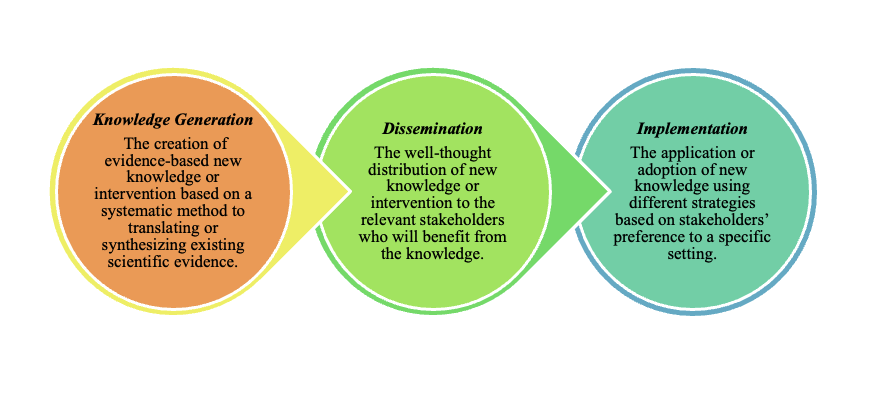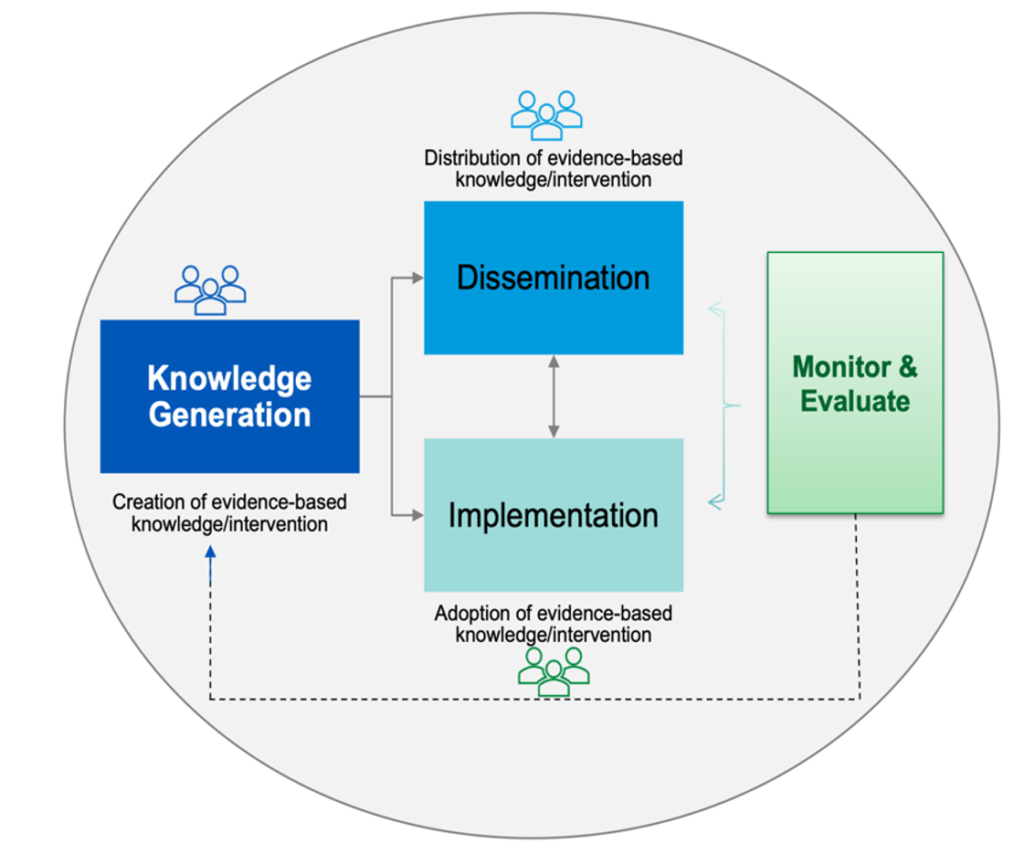Unveiling the Magic: Simplifying Evidence-Based Practice for Everyone
Unveiling the Magic: Simplifying Evidence-Based Practice for Everyone
Lubna Daraz, Ph.D., University of Montreal
Khondoker G. Morshed, MBA, Independent Researcher
There is a notable delay in incorporating research findings into practice, often taking two decades for interventions to impact patientcare. Empowering lay people, such as patients, caregivers, and the public, with accessible scientific information can significantly contribute to research and the creation of evidence-based solutions. Unfortunately, their involvement in developing healthcare solutions and other evidence-based initiatives is often limited.
The development of patientcare interventions often fails to align with the needs and preferences of diverse individuals, leading to a lack of adoption, inefficient resource utilization, and delayed advancements in patient and public health outcomes.
—The development of patientcare interventions often fails to align with the needs and preferences of diverse individuals—
It is crucial to establish user-friendly strategies to actively involve lay individuals in both research and its practical applications. Information Scientists specializing in Implementation Science are well-positioned to play a key role in bridging the gap between diverse populations and scientific knowledge.
Unveiling the Essence of Evidence-Based Practice
 The lack of clarity in defining effective evidence-based practice (EBP) has led to the emergence of various concepts. Terminologies like knowledge translation, dissemination, and implementation are commonly employed to convey the application of research knowledge into practice. Consequently, individuals and institutions interpret these terms within the specific context of their work. This has resulted in widespread confusion and uncertainty, especially among non-experts. Unfortunately, these concepts have traditionally been targeted at experts, such as healthcare providers, researchers, evidence-based practitioners, and policymakers. Simplified descriptions of these concepts are needed for lay individuals to make meaningful contributions to evidence-based research and practice.
The lack of clarity in defining effective evidence-based practice (EBP) has led to the emergence of various concepts. Terminologies like knowledge translation, dissemination, and implementation are commonly employed to convey the application of research knowledge into practice. Consequently, individuals and institutions interpret these terms within the specific context of their work. This has resulted in widespread confusion and uncertainty, especially among non-experts. Unfortunately, these concepts have traditionally been targeted at experts, such as healthcare providers, researchers, evidence-based practitioners, and policymakers. Simplified descriptions of these concepts are needed for lay individuals to make meaningful contributions to evidence-based research and practice.
- There is no consistent definition for describing how research translates into practice, causing confusion among people with limited expertise in evidence-based practice.
- A simplified solution is essential to understand the connection between knowledge translation, dissemination, and implementation.
- User-friendly models are crucial for non-experts to reduce the time to apply scientific evidence to practice.
Using the established definitions of knowledge translation, dissemination, and implementation, a simplified and accessible explanation for each concept in everyday language is offered. The comprehensive discussion on this topic is available in a published article.

While each concept possesses distinctive defining features, they all converge on a central theme illustrated in the figure below (Reproduced from Daraz & Morshed, 2023). This theme emphasizes the active involvement of diverse stakeholders, including patient representatives, caregivers, and members of the public, throughout every stage of EBP.

A Call for Action from the Evidence-based Practice Community
It is crucial to ignite a vibrant academic conversation that includes lay people, information professionals, healthcare providers and policymakers for advancing EBP. Join us in shaping a future where knowledge seamlessly transforms into positive outcomes for all.
Cite this article in APA as: Daraz, L. & Morshed, K. G. Unveiling the magic: Simplifying evidence-based practice for everyone. (2024, January 22). Information Matters, Vol. 4, Issue 1. https://informationmatters.org/2024/01/unveiling-the-magic-simplifying-evidence-based-practice-for-everyone/
Author
-
Dr. Lubna Daraz is a dynamic Assistant Professor in the vibrant School of Library and Information Science, part of the Faculty of Arts and Sciences at the prestigious University of Montreal. She is also a Researcher at the Centre de recherche en santé publique (CReSP). Prior to joining this academic haven, she made impactful strides as an Assistant Professor of Medicine and a Research Fellow at the renowned Mayo Clinic in Rochester, Minnesota, USA. Her academic journey is adorned with a Ph.D. in Health Sciences from McMaster University and a Master’s in Library and Information Sciences from the esteemed University of Toronto, Canada. In the realm of expertise, Dr. Daraz shines as a beacon in the fields of Evidence-based Practice, Knowledge Translation, Digital Health Information-Seeking, Digital Health Literacy, Health Informatics, and Implementation Science. Her passion extends to addressing the needs of Disadvantaged Populations, embodying a commitment to inclusivity and social impact. With an insatiable curiosity and a dedication to pushing the boundaries of knowledge, Dr. Daraz is not just an academic but a trailblazer shaping the future of health information sciences. Join her on a journey of discovery and innovation as she navigates the intersection of technology, health, and knowledge.
View all posts





